
The initiative is aimed at young undergraduate students who are in the last two years of their degree and who wish to carry out their paid professional practice in companies in the country.
Banco Santander invites you to participate in the call for the Santander 2018 Practice Scholarships, an initiative that seeks to collaborate with the insertion of students into the world of work.
The initiative, which is part of the Higher Education Support Program, offers scholarships for each university invited. It is aimed at young undergraduate students who are in the last two years of their degree and who wish to carry out their paid professional internship in companies in the country, for a period of three months.
For this, the student must be in charge of managing, according to the requirements of the institution to which they belong, their professional practice with companies. The amount of the scholarship amounts to USD $1.000 for the beneficiary students.
The process of application, selection and registration of the scholarship holders must be carried out through the website www.becas-santander.com. It is a requirement for applicants to complete the form on the website and deliver the documentation to their home of studies.
The application will be extended until November 23, 2018. Universities must award and send their selections to Santander Universities no later than Friday, November 30, 2018.
The call and selection of scholarship recipients will be the exclusive responsibility of the participating institutions. The results will be published in www.santander.cl y scholarshipssantander.universia.cl and by the universities themselves.
The bases are available here.
Higher Education Support Program (PAES)
Banco Santander is the company that invests the most in supporting education in the world (Varkey/UNESCO-Fortune 500 Report). Through Santander Universities it maintains more than 1.200 collaboration agreements with universities and academic institutions around the world and in Chile it collaborates with 53 universities throughout the country.
More information: www.santander.cl/universidades.
Source: University

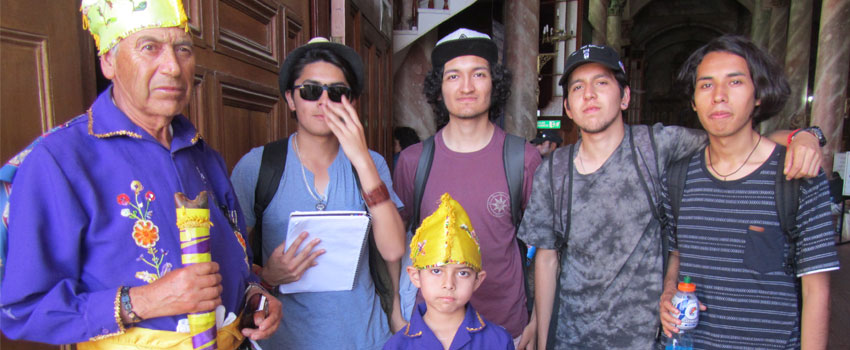
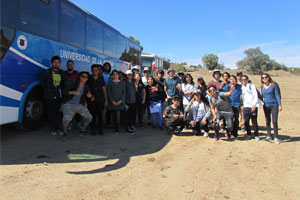 As explained by the academic from the Department of Music of the ULS, Lina Barrientos, the Fiesta Chica de Nuestra Señora del Rosario de Andacollo is “organized by Jaime Guerrero, Cacique General of Religious Dances, where once again, perhaps before 1584, uninterruptedly, devotees will fulfill the promises and/or thanks to the chinita, as the Virgin is affectionately distinguished. Chinita comes from the Chinese Quechua word that connotes server.
As explained by the academic from the Department of Music of the ULS, Lina Barrientos, the Fiesta Chica de Nuestra Señora del Rosario de Andacollo is “organized by Jaime Guerrero, Cacique General of Religious Dances, where once again, perhaps before 1584, uninterruptedly, devotees will fulfill the promises and/or thanks to the chinita, as the Virgin is affectionately distinguished. Chinita comes from the Chinese Quechua word that connotes server.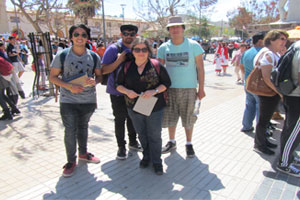 As in the pedagogical professional training of the Musical Education Pedagogy student body, the sound-musical observation of their own environment is considered in relation to the context in which it is present, the group of first-year students made records of the observations based on a guideline and previous preparation in the classroom.
As in the pedagogical professional training of the Musical Education Pedagogy student body, the sound-musical observation of their own environment is considered in relation to the context in which it is present, the group of first-year students made records of the observations based on a guideline and previous preparation in the classroom.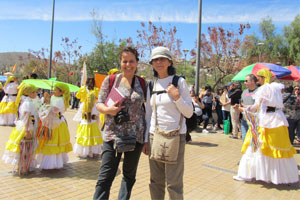 In addition to the teaching aspect of this trip to Andacollo, the ethnomusicological aspect was also present, related to the ongoing project: Turbans and Dances of Andacollo in its music. Aesthetics and emotions of a popular faith, by teachers Daniela Banderas and Lina Barrientos, a project financed by the Fund for the Promotion of National Music of the MCAP, sponsored by DIDULS and the Department of Music of the state campus, a study that also includes with the consent of the General Chief and the heads of Dances involved in the study.
In addition to the teaching aspect of this trip to Andacollo, the ethnomusicological aspect was also present, related to the ongoing project: Turbans and Dances of Andacollo in its music. Aesthetics and emotions of a popular faith, by teachers Daniela Banderas and Lina Barrientos, a project financed by the Fund for the Promotion of National Music of the MCAP, sponsored by DIDULS and the Department of Music of the state campus, a study that also includes with the consent of the General Chief and the heads of Dances involved in the study.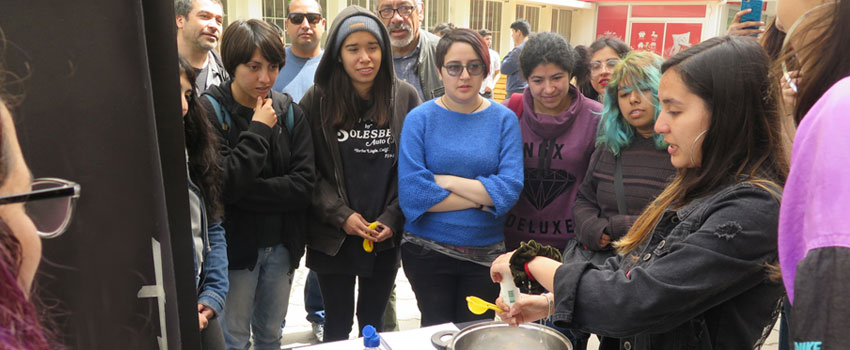
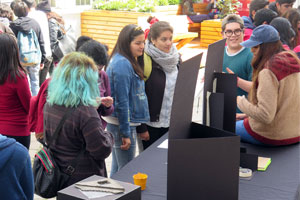 The academic explained that the fair is an entertaining means for young people to stimulate their own learning capacity and link the contents of the course (properties of materials and operation and analysis of structures) with their field of specialty.
The academic explained that the fair is an entertaining means for young people to stimulate their own learning capacity and link the contents of the course (properties of materials and operation and analysis of structures) with their field of specialty.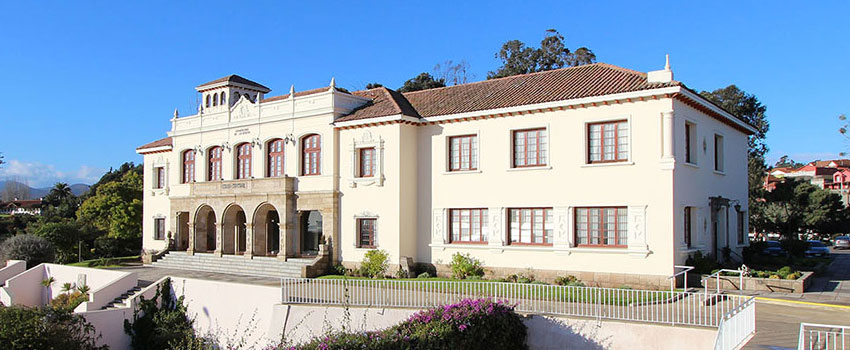
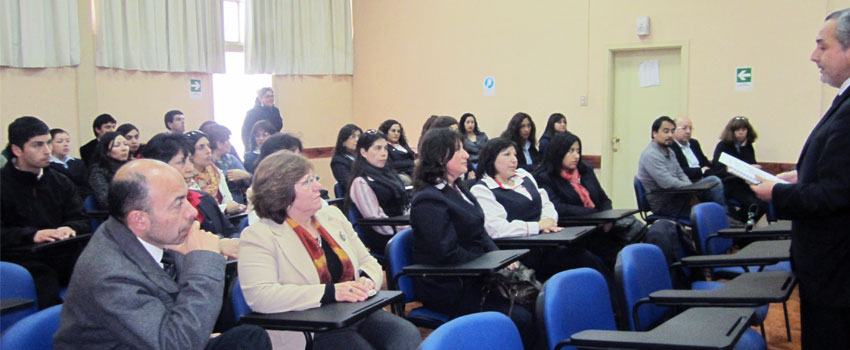
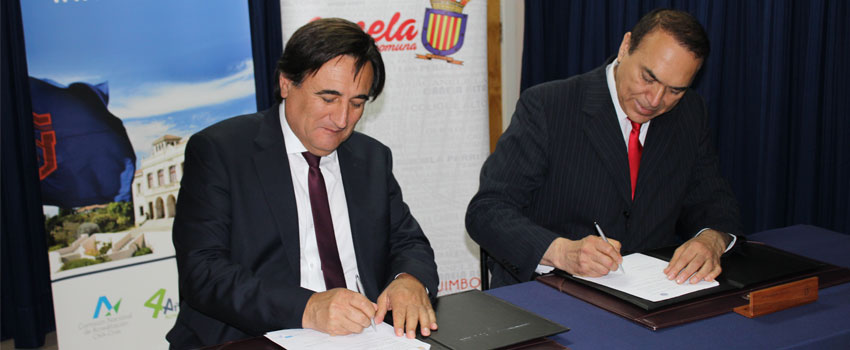
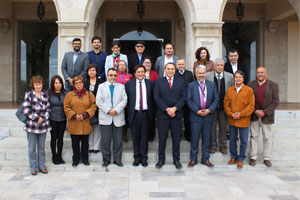 Thanks to this agreement signed by the Rector of the ULS, Dr. Nibaldo Avilés Pizarro, and the mayor of Canela, Juan Bernardo Leyton Lemus, the municipality, through the Department of Health, will provide its infrastructure (clinical fields) so that students can make use of them, get to know primary care on the spot and acquire fundamental experiences for their professional training. Likewise, municipal officials will be available to contribute to this training, which will be of relevant importance in the development of their future professions.
Thanks to this agreement signed by the Rector of the ULS, Dr. Nibaldo Avilés Pizarro, and the mayor of Canela, Juan Bernardo Leyton Lemus, the municipality, through the Department of Health, will provide its infrastructure (clinical fields) so that students can make use of them, get to know primary care on the spot and acquire fundamental experiences for their professional training. Likewise, municipal officials will be available to contribute to this training, which will be of relevant importance in the development of their future professions.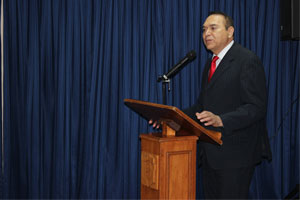 While the mayor of Canela thanked the will of the University of La Serena to sign this collaboration agreement "in which students, mainly from the health area, will be able to carry out their internships in our family health centers, in the posts of our commune. We all benefit from this: the people who will have more professionals working in our commune, and the students of the university institution”.
While the mayor of Canela thanked the will of the University of La Serena to sign this collaboration agreement "in which students, mainly from the health area, will be able to carry out their internships in our family health centers, in the posts of our commune. We all benefit from this: the people who will have more professionals working in our commune, and the students of the university institution”.